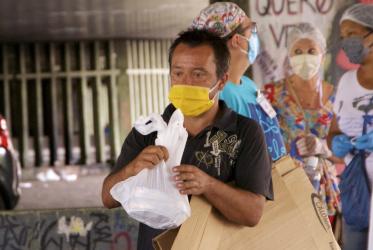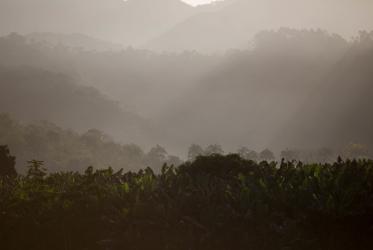Displaying 1 - 14 of 14
Seven weeks of Lent highlight water justice in Latin America
12 February 2018
Protect the Amazon, urges WCC statement
22 November 2017
G20 summit: call to pray for peace in Hamburg
07 July 2017
Indigenous faith leaders reflect on resilience and climate change
23 September 2014
Working for climate justice is an ethical and spiritual imperative
27 February 2013







